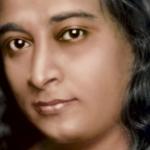God [‘elohim] has taken his place in the divine council [‘adat ‘el];
in the midst of the gods [‘elohim] he holds judgement.
Ps. 82.1 (NRSV)
References to a divine council or heavenly assembly are found frequently throughout the Hebrew Bible [1]. Simply, the divine council is the heavenly royal court over which Yahweh, the God of Israel, presides as heavenly king. The members of this heavenly court or assembly are referred to in the Hebrew Bible by such terms as: bene (ha)’elohim “sons of God” (Gen. 6.2, 4; Deut. 32.8-9; Job 1.6, 2.2, 38.7), ‘elohim “gods” (Ps. 82.1, 6), bene elim “sons of gods” (Ps. 29.1, 89.7), and bene ‘elyon “sons of the Most High” (Ps. 82.6). Moreover, the council itself is referred to by such appellations as the adat ‘el “council/assembly/congregation of ‘El/God” (Ps. 82.1), sod qedoshim rabbah “great council of the holy ones” (Ps. 89.8), sod YHWH “the council of Yahweh” (Jer. 23.18), and sod eloah “council of God” (Job 15.8).
The members of the divine council–the “sons of god” or “gods” as they are often described–served various functions. Yahweh’s heavenly council was frequently depicted in terms analogous to that of the royal court of an earthly king or monarch. Thus, just as a king presides over a body of counselors and administrators with whom he counsels and to whom he issues decrees, so too Yahweh was surrounded by an assemblage of heavenly beings with whom he counseled and to whom he issued decrees. For this reason the God of Israel is designated as ‘el ‘elyon “the Most High God” (Gen.14.18-19; Ps. 78.35; cf. Ps. 82.6), because there are other, lower gods who serve him and praise him in his heavenly divine council. The God of Israel is the Most High (God) because there are other, subordinate gods in his heavenly council. These gods obey Yahweh’s decrees and pay deference to Yahweh because he is the supreme God of the pantheon–but they too are still gods nonetheless. Like many ancient Near Eastern texts which exult a particular earthly king as supreme over all the kings or rulers of other nations, so Yahweh is supreme in relation to the other gods of his council and those of other nations. The relevant issue in these texts is not one of “ontology” or species, of course, but one of power, might, and glory. Thus we read in Ps. 29.1 (NRSV, alternate translation):
Ascribe to Yahweh, O sons of gods [bene ‘elim],
ascribe to Yahweh glory and strength.
In light of the preceding discussion, other biblical passages which directly state or imply the other existence of gods also make much more sense. For instance, Exodus 15.11 (NRSV) states:
Who is like you, O Lord, among the gods [‘elim]?
Who is like you, majestic in holiness,
awesome in splendour, doing wonders?
And Psalm 95.3 (NRSV) reads:
For the Lord is a great God,
and a great King above all gods [‘elohim].
The notion of the divine council in the Hebrew Bible has become more prominent and clearly defined in light of the important discoveries from ancient Ugarit, which discoveries provide perhaps the most important ancient literary and linguistic parallels to the Hebrew Bible to date (although there are noteworthy differences to be sure). In the texts from ancient Ugarit, the Canaanite high god ‘El presides over an large heavenly assembly (phr, dr, or ‘dt), the highest tier of which was composed of his sons (bn ‘il ). From KTU2 1.4.VI.46 we learn that El and Athirat (biblical Asherah), the consort of ‘El, had seventy divine sons. Such details recovered from the texts of ancient Ugarit very likely relate to the biblical descriptions of the divine council. For instance, in the table of nations in Genesis 10 there are exactly seventy nations listed, and in Deut. 32.8-9 the nations of the earth are divided among the sons of God, each of whom is given their own dominion or stewardship (this theme is also present in Psalm 82). Later Jewish tradition also asserted that there were seventy nations on earth, and other later texts confirm that there were seventy guardian angels which watched over them (Targum Pseudo-Jonathan on Deut. 32.8; 1 En. 89.59-77, 90.22-27). This tradition is clearly dependent on these earlier notions found in Genesis 10 and Deut. 32.8-9 (and Psalm 82) concerning the number of the nations and the sons of god appointed over them, and these biblical texts, in turn, are informed by the older traditions connected with the texts discovered at the ancient city of Ugarit. Thus Deut. 32.8-9 (NRSV, adapted) reads:
When the Most High [‘elyon] apportioned the nations,
when he divided humankind,
he fixed the boundaries of the peoples
according to the number of the sons of God/gods [bene ‘elohim];
YHWH’s portion was/is his people,
Jacob his allotted share.
The Masoretic Text (MT) which was followed by the King James Translators has “sons of Israel” instead of “sons of God.” However, the LXX and manuscript 4QDeut from the Dead Sea Scrolls, as well as several other ancient versions support the reading of the “sons of God.” The MT reading thus appears to be a deliberate alteration to change what was otherwise seen by an ancient scribe as a reference to the existence of other gods. Additionally, it should be noted that the sons of god/gods are never called the “sons of Yahweh;” except for Ps. 82.6, references to the sons of God virtually always occur with the root ‘l in the word for God. This is additional evidence that the notion of the divine council found in the Hebrew Bible is most likely heavily indebted to that of ‘El and his assembly of divine sons as found in the Ugaritic texts. Furthermore, Is. 14.13 pictures the assembly meeting upon the divine mountain of assembly, which notion is consistent with the depiction of the council as found in the Ugaritic texts as well.
There are thus numerous biblical passages which clearly state or imply that there are other real gods in existence, although Yahweh is seen as supreme among them. In addition to those verses cited above, consider also Psalm 89.6 (NRSV, adapted), which reads: “For who in the skies can be compared to Yahweh? Who among the sons of God is like Yahweh…?”, as well as Psalm 99.2 (4QPsalm), which states: “Yahweh is great in Zion, he is exalted over all the gods.” Furthermore, Deuteronomy 32.43 (NRSV) goes on to affirm that, “Praise, O heavens, his people, worship him, all you gods!” Finally, Job 38.4-7 (cf. Genesis 1.26-27; 3.22) (NRSV, adapted) declares: “Where were you when I laid the foundation of the earth? Tell me, if you have understanding. Who determined its measurements—surely you know! Or who stretched the line upon it? On what were its bases sunk, or who laid its cornerstone when the morning stars sang together and all the sons of God shouted for joy?” These are just a sample of the biblical texts which demonstrate that the biblical authors believed that there were other real gods in existence besides Yahweh.
Reflections
I have purposely failed to define either the concepts of monotheism or polytheism in the post, and I will leave such discussion for the comments below. I will note again, however, that the difference between Yahweh and the gods of his council (or the gods of other nations) was not seen by the ancient Israelites in terms of a difference in species or kind, but in degree of power, might, and glory. I would also note that passages such as Deuteronomy 32.8-9 clearly demonstrate that these other gods held dominions or stewardships over other nations, just as Yahweh possessed Israel. Moreover, it seems clear based on passages such Job 38.4-7 and Genesis 1.26-27 (as well as Genesis 3.22) that these other gods participated in the creation of the world and were considered to be like God (i.e., having knowledge of good and evil and being immortal). What then do these texts imply or entail for those monotheistic Judeo-Christian religious traditions–including LDS Christianity–that lay claim to the Bible as a religiously authoritative text in some sense? How can or should such ancient Israelite views be dealt with in these faith traditions?
Notes
[1] For this post I have drawn heavily from John Day’s section “The Sons of El (God)” in his book Yahweh and the Gods and Goddesses of Canaan. Journal for the study of the Old Testament, 265. (Sheffield: Sheffield Academic Press, 2000), 22-24.











